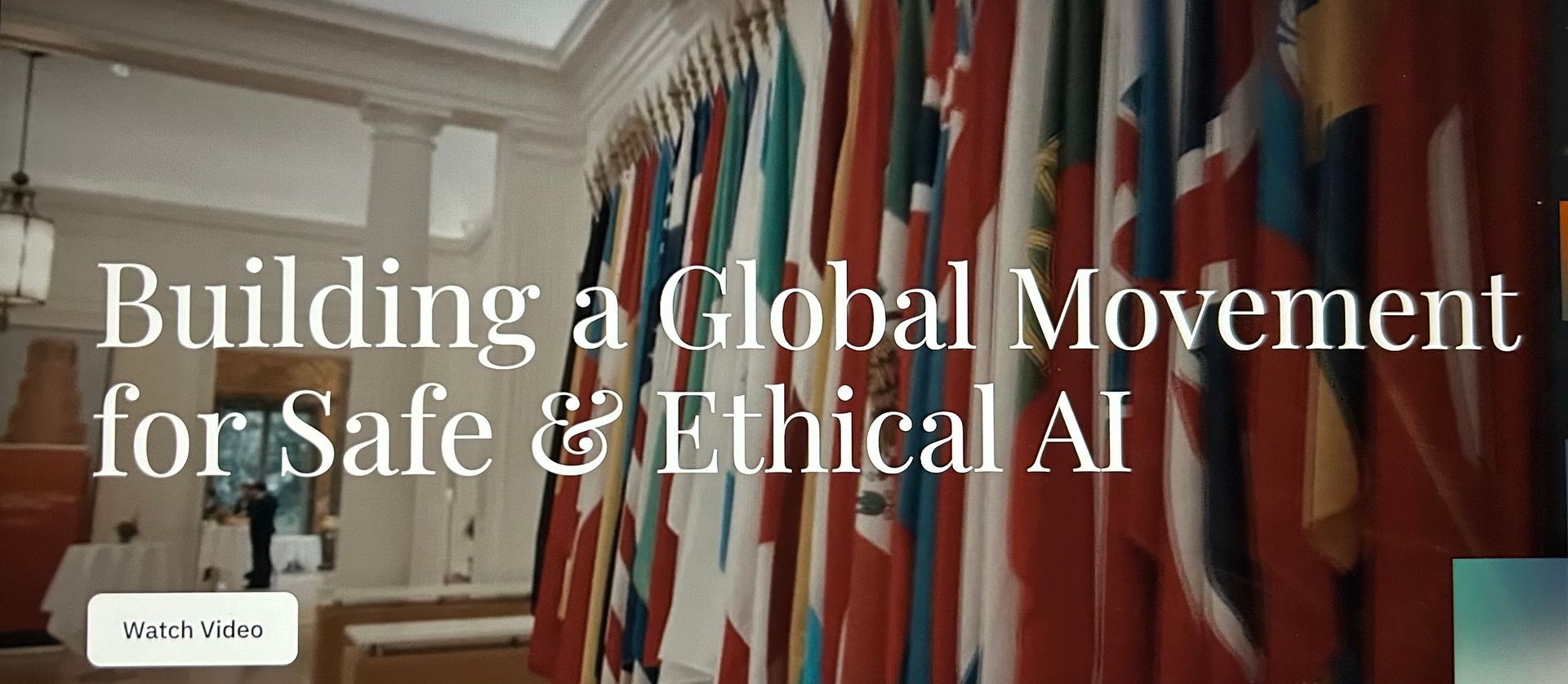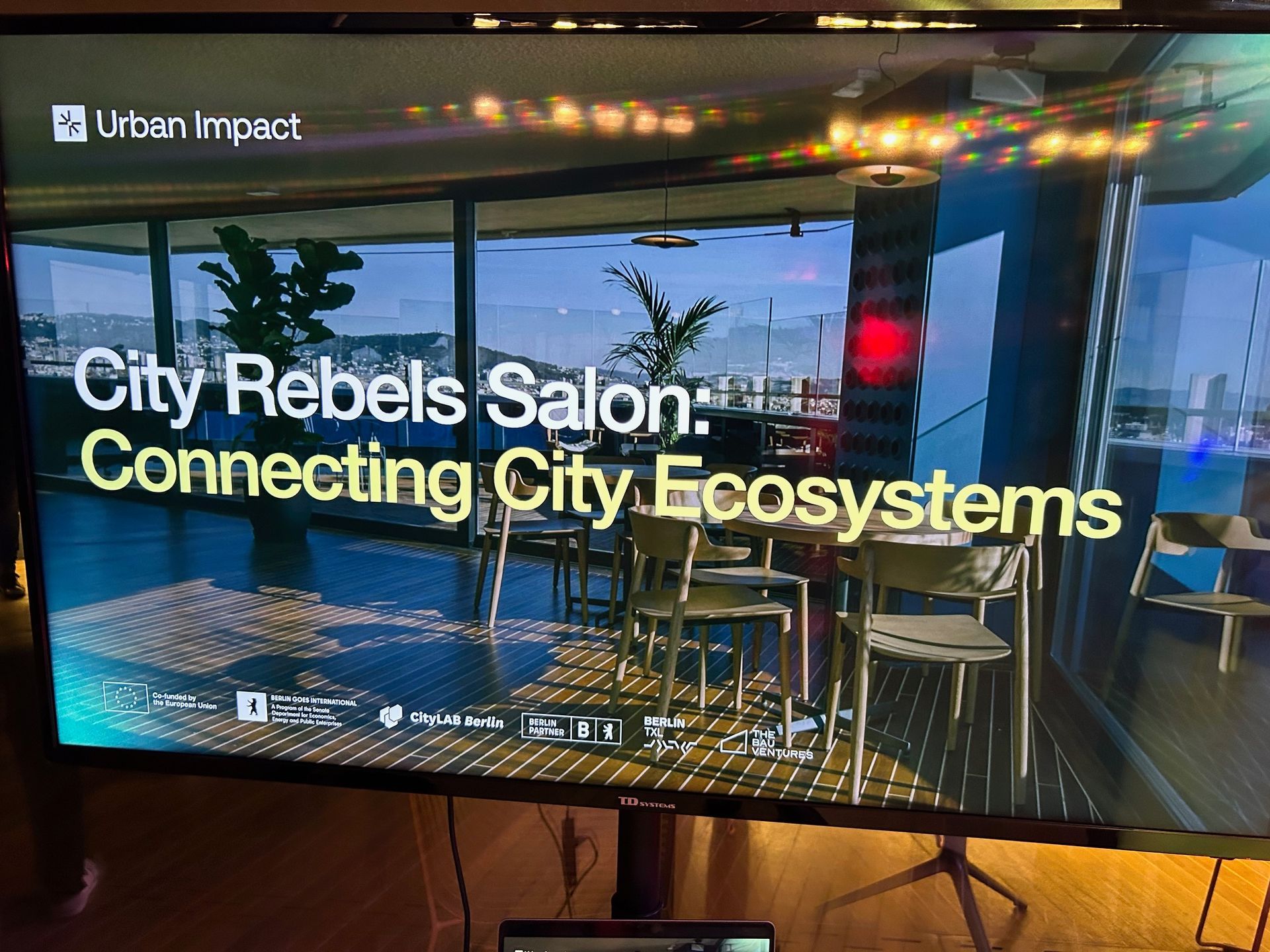A Rich Country’s Challenge Entering the Heaven of Sustainability
Angela Merkel receiving the new position paper on 8 June 2021;
Picture: Bundeskanzleramt/Steins
Germany's government has received a new position paper on climate-neutrality and sustainable development but will the country take the opportunity to lead the way for sustainability?
Global agendas require good national strategies and capacities to be implemented at national and subnational level
The United Nations 2030 Agenda with its Sustainable Development Goals (SDG) and the Paris Agreement of the United Nations Framework Convention on Climate Change (UNFCCC) are different types of international agreements. What they have in common is that their implementation depends on ‘nationally determined contributions’ (Art 3 Paris Agreement) ‘taking into account different national realities, capacities and levels of development and respecting national policies and priorities’ (Art 21 of the 2030 Agenda A/RES/70/1). Thus, it requires national implementation strategies and the building of national capacities which then translate the international goals into national policies and actions for goal achievement. Not paying enough emphasis to these strategies and their functioning risks goal achievement.
Being a rich country is not always easy
Germany is perceived of being a rich country and a leader in the field of sustainability. Indeed, Germany has globally one of the top ranking GDP. Policies including the German energy transition already triggered a significant structural change in the energy system. The country benefited from the reduction of CO2 emissions due to the collapse and transition of the economy of Eastern Germany in the 1990s. In addition, Germany already in 2001 established a Council for Sustainable Development advising the government. Since Angela Merkel became Chancellor of the Federal Republic of Germany she attended 16 times the Annual Meeting of the Council (see picture board below compiled by the Council). So, there seems to be good willing actors and resources to take action. But Germany has a problem: It’s one of the rich kids on the block.

You may wonder why being rich is a problem. Rich countries have more resources than other countries and should be able to invest more, to take greater risks and to solve problems easier than others. That is very true. At the same time the richer a country is the more it can lose. This risk can slow down action and it generates the paradox of a situation where countries like Germany want to do both, share their wealth with others who have less but maintain the advantages of their privileged status to not fall behind in future (in other words: eat the cake and keep it).
In highly industrialized countries with a large population like Germany wealth exists only partly in form of a stockpile of money which could be given away. Instead, most of the wealth is invested in ongoing efforts to maintain and develop economic competitiveness, high living standards, outstanding education, health systems, social protection, infrastructure etc. Citizens in countries like Germany pay relatively high taxes to maintain this system and in return they easily get nervous if the system is put in danger of losing part or all of its value.
And this is the point: Transforming a system like the German economy and society towards sustainability is like a major surgery of a living and bustling organism. Mistakes may damage or destroy the entire organism. Even if there is a public awareness about deficits and unhealthiness of the system there is also the awareness on how much could be lost if the wrong decisions are taken and the currently strong system falters. Therefore, it’s no surprise why wealthy nations hesitate to change the path which made them rich even though this very path risks to hit the wall very soon.
I didn’t write the above to justify inequality or unsustainable politics. It’s just to raise the awareness that the transformation needed is not only linked to opportunities but also to risks and that even in high developed countries. To secure opportunities for future generations it’s not sufficient to just reduce CO2 emissions and protect natural resources. It also requires to preserve, develop and adapt achievements of our current societies, their educational, cultural, health, governance and other systems and structures. Realising this is for many politicians like a cold shower and they may get afraid of their own courage to launch major reforms. How to do all that and keep a focus on what’s needed?
Having all this in mind the German Council for Sustainable Development and the German National Academy of Sciences Leopoldina came up with an ambitious proposal on 8 June 2021 at the 20th Annual Conference of the German Council for Sustainable Development (Online Conference, in German).[1] The Chairman, Werner Schnappauf almost broke his fingers (meaning: he seemed being very nervous) when he repeated several times that the joint position paper is not a political plan but just a science-based technical description of options leaving all political decision-making to politicians. Well, that’s what academics often say when they are aware that their proposal is politically highly explosive and what makes it worse in the case of Germany that the report was published just months before the September national elections. Unfortunately, it's the governments own Council for Sustainable Development that insists on staying outside of the preparation of specific measures which are now expected from politics.
[1] Council for Sustainable Development: https://www.nachhaltigkeitsrat.de/
LEOPOLDINA: https://www.leopoldina.org/en/leopoldina-home/
Werner Schnappauf, Chair of the Council for Sustainable Development; Picture: Rat für Nachhaltigkeit
The nexus: everything is depending on the energy system
To keep this post short, let’s go right to the core of the position paper ‘Climate-neutrality – Options for an ambitious reorientation and implementation’ (‘Klimaneutralität – Optionen für eine ambitionierte Weichenstellung und Umsetzung’)[1]. It presents a mix of instruments for an integrated economic, environmental and social development. More important, its implementation is required mainly for the next legislative period (2021-2025). From international cooperation to technical, economic and financial transformation the position paper describes principles. Most importantly, it asks for a systemic transformation with pricing of carbon emissions as the central nexus point because energy consumption is driver of the economy and society. Thus, transforming energy consumption would be the key to sustainability. Restructuring and transitioning the energy system away from fossil towards renewable energy sources will trigger transformation across economic sectors and will also change everybody’s daily life. To add pressure and in reference to a recent ruling of the German Supreme Court, the position paper states that the main part of the emissions reduction has to be delivered within this decade. Otherwise, it would shift the burden to the next generation which the Supreme Court wants to prevent with its ruling.
While many recommendations look familiar to other principles described in the Paris Agreement and 2030 Agenda of the UN the power of the new position paper stems from the demand to act now and in this decade in a systemic way leaving no one behind to prevent irreversible tipping points of climate change. And imagine, starting by changing the energy system will leave nothing as it is now. This is now written down and neither the current nor the future government will be able to ignore that this advice was provided by own advisory bodies.
The position paper calls for multilateral cooperation, political decisions and participation and leadership by the society. It may surprise some but it prefers market tools wherever possible. This was underscored also during the Annual Conference. However, as Maja Göpel, Director of The New Institute in Hamburg made clear in her presentation the market is not a purpose of itself. Instead, it has to serve the security of supply, provide transparency of assets and has to take seriously and provide transparency on long term goals and strategies. And it is the role of the government to provide an enabling environment that assures that the development stays on track for goal achievement. It was amazing how she promoted in her ideology free presentation a major shift in economic policy orientation.
[1] https://www.nachhaltigkeitsrat.de/wp-content/uploads/2021/06/RNE_Leopoldina_Positionspapier_Klimaneutralitaet.pdf
Picture: Screenshot from the presentation by Maja Göpel as the session ‘New thinking and decision-making – imperative for a sustainable policy’
Politicians and their scientific advisors remain hesitant to enter the road towards sustainability
Following the presentation and discussion of the position paper politicians were invited to take position in the afternoon. Would they jump on the boat and implement the advice provided?
Responding was easy for Angela Merkel who received the paper but who in September 2021 is not running for office again. While she won’t be responsible for any implementation after September of this year she made very clear that it is insufficient what has been done so far: “Was wir bisher tun, reicht schlichtweg nicht aus”. [1] This clear statement increased pressure on subsequent speakers from political parties. Nonetheless, most of them walked on eggshells trying to link a praise of the position paper with a cautioning and pointing to important particular interests. Upcoming elections were clearly on their mind and so they hesitated to make far reaching commitments.
And this brings me back to the beginning of this post. With its strong industries, high employment rate and high living standard Germany made a fortune using energy from fossil sources for centuries and especially since the beginning of the industrialization. Taking away this source of wealth and to transform the energy sector as described as an option by the Council and Leopoldina puts achievements of the past at risk. That’s a lot to swallow for politicians and voters during an election period. Of course, doing nothing will put all human life on earth at risk. So, the position paper of the Council and Leopoldina may be tough in its risk assessment but at least it indicates options to overcome the crisis. Germany's politicians and voters should be happy about having such forward-looking think tanks.
But not all the blame goes to the politicians and voters. The approach of the Council and Academy Leopoldina are also ... let's say ... irritating. On the one hand they warn of the risk of irreversible tipping points which threaten all live on earth. On the other hand they underscore that it isn’t their role to suggest political solutions. Maybe they have seen during the Corona pandemic that some virologists ended between political frontlines because they clearly described what needs to be done to get the pandemic under control. But this clear positioning by scientists was indispensable to make the dialogue on solutions more rational and solution oriented. The Council of Sustainable Development seems to take a different position.
I do understand the interest in protecting the independence of science but in the given case it is a bit as if a medical doctor tells you: I can tell you about your life threatening disease but I don’t tell you how to heal it and I certainly will not help during a surgery. Well, I don't really understand. The Council is not a project of basic research and if not even the Advisory Council of the Government in cooperation with the National Academy of Sciences has the courage to speak out clearly on what needs to be done exactly something is wrong.
Politicians, council members and scientific advisors seem to agree on the analysis of the situation but they are all not really oriented towards joint search for solutions. Instead, they hide behind their own traditional roles and hesitate to leave their own silos. It is doubtful that this way a solution can be found. In this situation a national strategy for sustainable development could help. Of course, Germany has a sustainability strategy but apparently it doesn’t define the roles, responsibilities and cooperation among stakeholders in a solution-oriented way. The adding up of separate steps doesn't make an integrated process. Capacity building on interface management could help in this situation to better link the different arenas of science, policy advise and policy-making. With a little extra effort the good wiling government and the excellent expertise of the Council and the National Academy Leopoldina could easily increase the problem solving competence of the German institutional setting to support a sustainable development. Saving the earth should be worth that extra effort.
[1] https://www.sueddeutsche.de/politik/klimaschutz-rat-fuer-nachhaltige-entwicklung-angela-merkel-1.5315882
Policies and Governance for Resilient and Sustainable Cities and Regions












